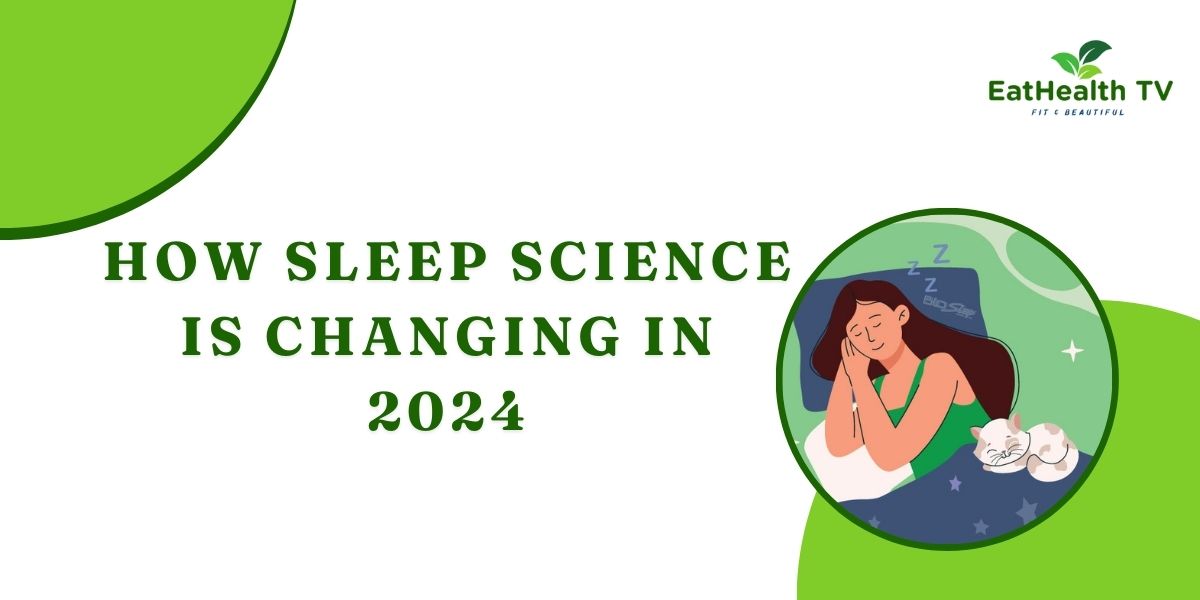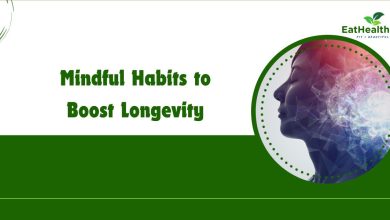How Sleep Science is Changing in 2024
Unlocking Restful Nights: 2024’s Sleep Science Breakthroughs for Better Health
How Sleep Science is Changing in 2024: New Innovations Revealed

In 2024, sleep science is undergoing a revolutionary transformation. What once seemed like a simple process of closing your eyes and resting for several hours has become a major focus of research and innovation. The importance of sleep has been well established over the years, with links to mental health, physical well-being, cognitive performance, and even longevity. However, the ways in which scientists and medical professionals approach sleep in 2024 are more sophisticated, driven by emerging technologies, new research on sleep disorders, and a deeper understanding of how our bodies and brains interact with rest.
This post will explore the cutting-edge advancements in sleep science in 2024, from personalized sleep solutions to AI-powered sleep trackers, sleep hygiene’s new role in public health, and the promising future of sleep research.
The Importance of Sleep
Before delving into how sleep science is changing in 2024, it’s essential to understand why sleep is so critical. Sleep is not just a passive state but an active process where the brain and body go through different stages, including light sleep, deep sleep, and REM (rapid eye movement) sleep. Each stage plays a crucial role in restoring the body, processing emotions, consolidating memories, and regulating metabolism.
Lack of quality sleep has been linked to various health issues, including obesity, diabetes, cardiovascular diseases, and mental health problems like anxiety and depression. Chronic sleep deprivation impairs cognitive function, slows down reaction time, and affects emotional regulation.
Given its impact on health and well-being, the scientific community has long been interested in finding ways to improve sleep quality. In 2024, new research and technology are significantly advancing our understanding and ability to enhance sleep.
Personalized Sleep Solutions
In 2024, the one-size-fits-all approach to sleep health is being replaced by personalized solutions. Advances in genetics, data analytics, and sleep tracking allow researchers to develop customized sleep strategies tailored to individual needs.
Genetic Insights
Genetic research has unveiled that our need for sleep, how we respond to sleep deprivation, and even the optimal sleep duration can be influenced by our DNA. In 2024, genetic testing companies are offering services that analyze a person’s genetic markers related to sleep. This information helps create personalized sleep plans that can optimize rest and address specific challenges like insomnia or circadian rhythm disorders.
For example, some people may be genetically predisposed to be “short sleepers,” needing less than the standard 7-9 hours of sleep to function optimally. Others may require more sleep to perform at their best. Armed with genetic insights, individuals can now receive personalized recommendations on their ideal sleep duration and timing, helping them optimize productivity and well-being.
AI-Powered Sleep Trackers
Sleep tracking technology has been around for years, but in 2024, it’s taken to a new level with the integration of artificial intelligence (AI). Smart devices now use advanced sensors and machine learning algorithms to provide more accurate and detailed data about sleep patterns. These devices can track heart rate, breathing, movement, and even brain activity during sleep, offering a comprehensive picture of sleep quality.
AI-powered sleep trackers can also analyze trends and predict sleep disturbances, such as sleep apnea, long before a person experiences noticeable symptoms. These devices provide personalized feedback and actionable insights, helping individuals make informed decisions about their sleep hygiene.
For instance, if the device detects that a person is frequently waking up during the night or spending too much time in light sleep, it may recommend adjusting their bedtime routine, diet, or environmental factors like room temperature and light exposure. By combining AI analysis with individual data, these trackers are becoming a vital tool in improving sleep quality.
Addressing Sleep Disorders with New Treatments
Sleep disorders such as insomnia, sleep apnea, restless leg syndrome, and narcolepsy have long been challenges for millions of people worldwide. In 2024, sleep science has made considerable strides in diagnosing and treating these disorders with innovative approaches.
Insomnia Treatment Revolution
Insomnia, a condition where individuals struggle to fall asleep or stay asleep, has traditionally been treated with cognitive-behavioral therapy (CBT) or medication. While these approaches are effective for some, they don’t work for everyone. In 2024, researchers are exploring new treatments like transcranial magnetic stimulation (TMS) to help insomniacs achieve restful sleep. TMS uses magnetic fields to stimulate nerve cells in the brain, which can help reset dysfunctional sleep patterns.
Another exciting development is the use of virtual reality (VR) and biofeedback techniques to treat insomnia. VR-based therapies create immersive, relaxing environments that help train the brain to associate certain cues with sleep. Biofeedback helps individuals monitor their physiological responses, such as heart rate and muscle tension, and learn how to control them to achieve a more restful state.
Sleep Apnea Advances
Sleep apnea, a condition where breathing repeatedly stops and starts during sleep, can lead to serious health complications if left untreated. Continuous Positive Airway Pressure (CPAP) machines have been the standard treatment for sleep apnea for years. In 2024, however, less invasive and more comfortable alternatives are becoming available.
One promising innovation is the development of implantable devices that stimulate airway muscles to prevent collapse during sleep. These devices are surgically implanted and provide a more convenient option for those who find CPAP machines uncomfortable or impractical.
Additionally, AI algorithms in sleep trackers are helping to detect the early onset of sleep apnea, allowing for quicker diagnosis and intervention.
The Role of Sleep Hygiene in Public Health
In 2024, sleep hygiene has become a focal point in public health initiatives. Sleep hygiene refers to practices and habits that promote good sleep, such as maintaining a consistent sleep schedule, creating a relaxing bedtime routine, and optimizing the sleep environment. With the increasing prevalence of sleep-related health issues, public health organizations are emphasizing the importance of sleep hygiene as part of a holistic approach to wellness.
Education and Awareness Campaigns
Governments and health organizations are launching widespread campaigns to raise awareness about the importance of sleep. These campaigns highlight the dangers of chronic sleep deprivation and offer practical tips for improving sleep hygiene. Schools, workplaces, and communities are being encouraged to adopt sleep-friendly policies, such as flexible work hours and nap-friendly environments, to combat the growing sleep crisis.
Digital Sleep Coaches
In 2024, digital sleep coaches are becoming a popular tool for improving sleep hygiene. These AI-powered apps and devices provide users with personalized advice based on their sleep data. Whether it’s suggesting optimal bedtime routines, recommending relaxation techniques, or adjusting lifestyle factors like diet and exercise, these digital coaches are helping people take control of their sleep health.
The Future of Sleep Research
As we look toward the future, sleep research in 2024 is expanding beyond the bedroom. Scientists are investigating the potential of sleep in enhancing cognitive abilities, creativity, and problem-solving skills. There is also growing interest in the role of sleep in aging and longevity.
Sleep and Cognitive Enhancement
Sleep has long been associated with memory consolidation and learning, but new studies in 2024 are exploring how sleep can be optimized to boost cognitive performance. Researchers are experimenting with techniques like “targeted memory reactivation,” where specific sounds or cues are used during sleep to enhance memory retention and learning.
Additionally, the concept of “lucid dreaming” is gaining traction as a tool for creativity and problem-solving. Lucid dreaming occurs when a person becomes aware that they are dreaming and can control their dreams. Some researchers believe that this state could be harnessed to solve complex problems or inspire creative breakthroughs.
Sleep and Longevity
Sleep’s role in longevity is an exciting area of research in 2024. Studies suggest that improving sleep quality could be a key factor in slowing down the aging process and preventing age-related diseases. Scientists are investigating the molecular and cellular processes that occur during sleep, with the hope of uncovering ways to extend healthy lifespans.
Conclusion
The Sleep Science is undergoing a profound transformation in 2024. Personalized sleep solutions, AI-powered sleep trackers, new treatments for sleep disorders, and public health initiatives are all contributing to a deeper understanding of how sleep affects our lives. As we continue to unravel the mysteries of sleep, it’s clear that the future holds exciting possibilities for improving both the quality of our rest and our overall well-being.
With technology and research pushing the boundaries of what we know about sleep, the coming years promise to unlock even more potential for optimizing this vital aspect of human health.




